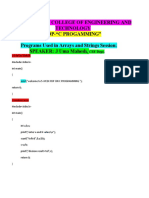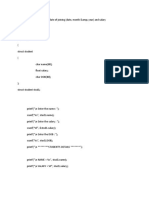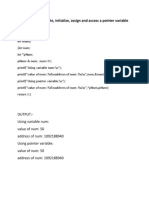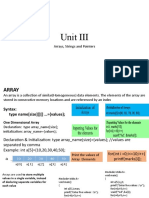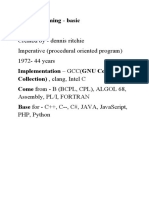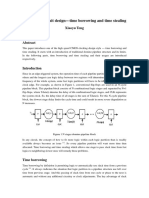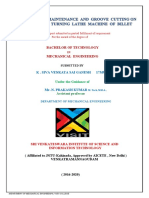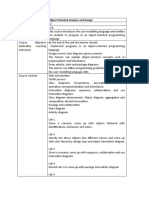0% found this document useful (0 votes)
27 views14 pagesC_Tutorial_with_examples
Real life examples for C
Uploaded by
arunsrlCopyright
© © All Rights Reserved
We take content rights seriously. If you suspect this is your content, claim it here.
Available Formats
Download as PDF, TXT or read online on Scribd
0% found this document useful (0 votes)
27 views14 pagesC_Tutorial_with_examples
Real life examples for C
Uploaded by
arunsrlCopyright
© © All Rights Reserved
We take content rights seriously. If you suspect this is your content, claim it here.
Available Formats
Download as PDF, TXT or read online on Scribd
/ 14

